Happy Holidays and a Prosperous New Year from FSI Technologies Inc.! In observance of the holidays, we will be closed on the following dates: 12/25/13, 12/26/13, 12/27/13 and 1/1/14. If you have an urgent need for assistance, please email us at customerservice@fsinet.com and we will get in touch with you as quickly as possible. Thank you for your business.
Category Archives: FSI Encoders
Replacement encoders available for CNC machines
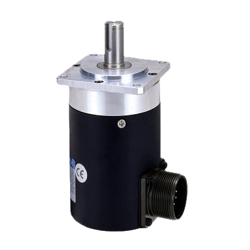
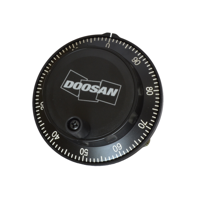
FSI Technologies Inc. carries several models of the Kwangwoo encoders for replacement purchase purposes. These encoders work for both Doosan turning centers and mills. Contact our customer service assistance at customerservice@fsinet.com to find out more about the encoder that is right for you.
Encoder Technical Manual
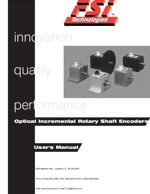 The FSI Encoder “User’s Manual” is the complete guide to Optical Incremental Rotary Shaft Encoders. The guide contains common output options, wiring information, mechanical drawings for the RSE, HDE and ESE series encoders, and common encoder formulas. The section on encoder theory discusses operation, noise immunity, output options, construction, interfacing, power requirements, mechanical limits, electrical speed limits, environmental limits and maximum line resolution.
The FSI Encoder “User’s Manual” is the complete guide to Optical Incremental Rotary Shaft Encoders. The guide contains common output options, wiring information, mechanical drawings for the RSE, HDE and ESE series encoders, and common encoder formulas. The section on encoder theory discusses operation, noise immunity, output options, construction, interfacing, power requirements, mechanical limits, electrical speed limits, environmental limits and maximum line resolution.
Custom Encoders from FSI
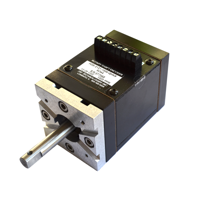 In addition to our standard encoders, FSI can design and manufacture custom encoders to your specifications, for both OEM and specialty applications. Typical customizations include: shaft lengths and diameters; special mounting configurations; various enclosure sizes; different connectors; modified electronics for different output types; enhancements to meet environmental requirements. Call FSI at (630)932-9380 to discuss your custom encoder needs with one of our engineers.
In addition to our standard encoders, FSI can design and manufacture custom encoders to your specifications, for both OEM and specialty applications. Typical customizations include: shaft lengths and diameters; special mounting configurations; various enclosure sizes; different connectors; modified electronics for different output types; enhancements to meet environmental requirements. Call FSI at (630)932-9380 to discuss your custom encoder needs with one of our engineers.
More accessories you can use
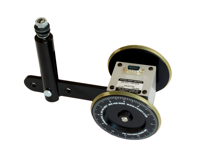 In addition to wide variety of encoders found on our website, you’ll now find encoder accessories too. Whether you need measuring wheels and chariot mounting systems for measuring, counters to turn the output into motion information (length, speed, position) or flexible couplings to accurately couple the encoder to the machine – the FSI website has it all. For more information about these accessories and more visit: http://www.fsinet.com/ECS-Accessories.htm.
In addition to wide variety of encoders found on our website, you’ll now find encoder accessories too. Whether you need measuring wheels and chariot mounting systems for measuring, counters to turn the output into motion information (length, speed, position) or flexible couplings to accurately couple the encoder to the machine – the FSI website has it all. For more information about these accessories and more visit: http://www.fsinet.com/ECS-Accessories.htm.
Is your maintenance staff still in the dark?
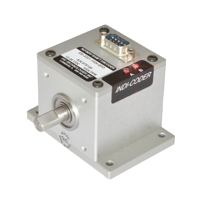 FSI Technologies has shed some light on the problem! The “Indicoder” option is available exclusively on all FSI cube type encoders (ESE, RSE, HDE, etc*). With this option, LEDs are located directly on the body of the encoder that flash as the shaft is turned to instantly verify correct output operation. This indicator will make set-up quick and easy and would also aid in troubleshooting (if that ever becomes necessary). Just ask for the “Indicoder” option when ordering your FSI cube encoder. (*formerly known as Fork Standards encoders)
FSI Technologies has shed some light on the problem! The “Indicoder” option is available exclusively on all FSI cube type encoders (ESE, RSE, HDE, etc*). With this option, LEDs are located directly on the body of the encoder that flash as the shaft is turned to instantly verify correct output operation. This indicator will make set-up quick and easy and would also aid in troubleshooting (if that ever becomes necessary). Just ask for the “Indicoder” option when ordering your FSI cube encoder. (*formerly known as Fork Standards encoders)
New line of counters in the 2013 FSI Product Guide
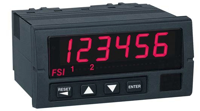 The latest 2013 Product Guide from FSI features a new line of full-featured bi-directional and programmable counters. The Quasar family of digital counters offers 2 non-sequential presets and 2 outputs for flexibility in use on a wide variety of applications. Once installed, units are waterproof and durable enough for use in manufacturing. Quasar encounters work well with Fork Standard encoders as well as many other types of automated controls. To find the counter that best suits your needs, review our latest product guide at www.fsinet.com
The latest 2013 Product Guide from FSI features a new line of full-featured bi-directional and programmable counters. The Quasar family of digital counters offers 2 non-sequential presets and 2 outputs for flexibility in use on a wide variety of applications. Once installed, units are waterproof and durable enough for use in manufacturing. Quasar encounters work well with Fork Standard encoders as well as many other types of automated controls. To find the counter that best suits your needs, review our latest product guide at www.fsinet.com
Heavy Duty Encoders (HDE) work well for grimy manufacturing processes
The HDE model of Fork Standards encoders is uniquely suited to work well in wet or grimy manufacturing environments. This encoder has an extra-rugged and fully-sealed cube housing. The unit features double shaft seals which prevent mechanical damage to the bearings and seal the shaft against dry or liquid contaminants. To find out more about our HDE model of encoder, visit http://www.fsinet.com/ECS-HDE-Encoder.htm
Would your application benefit from a customized sensor?
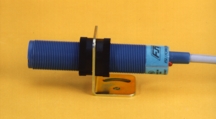 In addition to encoders and machine vision systems/solutions, FSI Technologies Inc. designs and manufactures custom photoelectric sensors too. Many OEMs use sensors as an inexpensive and effective way of assisting in automatic inspection. Sensors are most often used to measure speed (or RPM), presence or absence of a part and as a way to calculate distance/positioning. If you think your application would benefit from a leading edge, specialized sensor product, one of our engineers can steer you in the right direction. For more information about FSI sensors, visit www.fsinet.com/ECS-Sensors.htm
In addition to encoders and machine vision systems/solutions, FSI Technologies Inc. designs and manufactures custom photoelectric sensors too. Many OEMs use sensors as an inexpensive and effective way of assisting in automatic inspection. Sensors are most often used to measure speed (or RPM), presence or absence of a part and as a way to calculate distance/positioning. If you think your application would benefit from a leading edge, specialized sensor product, one of our engineers can steer you in the right direction. For more information about FSI sensors, visit www.fsinet.com/ECS-Sensors.htm
